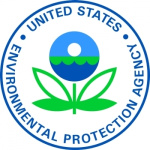- Industry: Government
- Number of terms: 11955
- Number of blossaries: 0
- Company Profile:
U.S. Environmental Protection Agency (EPA) is a federal agency responsible for the development and enforcement of regulations for human health and environment protection. The agency researches and sets standards for environmental programs and delegates. It was founded in 1970 following the proposal ...
To chemically transform a substance by combining it with oxygen.
Industry:Natural environment
Terrestrial, or biologic, carbon sequestration is the process by which trees and plants absorb carbon dioxide, release oxygen, and store carbon. Geologic sequestration is one step in the process of carbon capture and sequestration (CCS), and involves injecting carbon dioxide deep underground where it stays permanently.
Industry:Natural environment
The total amount of greenhouse gases that are emitted into the atmosphere each year by a person, family, building, organization, or company. A persons carbon footprint includes greenhouse gas emissions from fuel that an individual burns directly, such as by heating a home or riding in a car. It also includes greenhouse gases that come from producing the goods or services that the individual uses, including emissions from power plants that make electricity, factories that make products, and landfills where trash gets sent.
Industry:Natural environment
Residential solid waste and some non-hazardous commercial, institutional, and industrial wastes. This material is generally sent to municipal landfills for disposal.
Industry:Natural environment
A treeless, level, or gently undulating plain characteristic of the Arctic and sub-Arctic regions characterized by low temperatures and short growing seasons.
Industry:Natural environment
Amount of a chemical in a particular volume or weight of air, water, soil, or other medium.
Industry:Natural environment
Climate change refers to any significant change in the measures of climate lasting for an extended period of time. In other words, climate change includes major changes in temperature, precipitation, or wind patterns, among others, that occur over several decades or longer.
Industry:Natural environment
A process that alters the energy balance of the climate system, i.e. changes the relative balance between incoming solar radiation and outgoing infrared radiation from Earth. Such mechanisms include changes in solar irradiance, volcanic eruptions, and enhancement of the natural greenhouse effect by emissions of greenhouse gases.
Industry:Natural environment
The downward settling of the Earth's crust relative to its surroundings.
Industry:Natural environment
